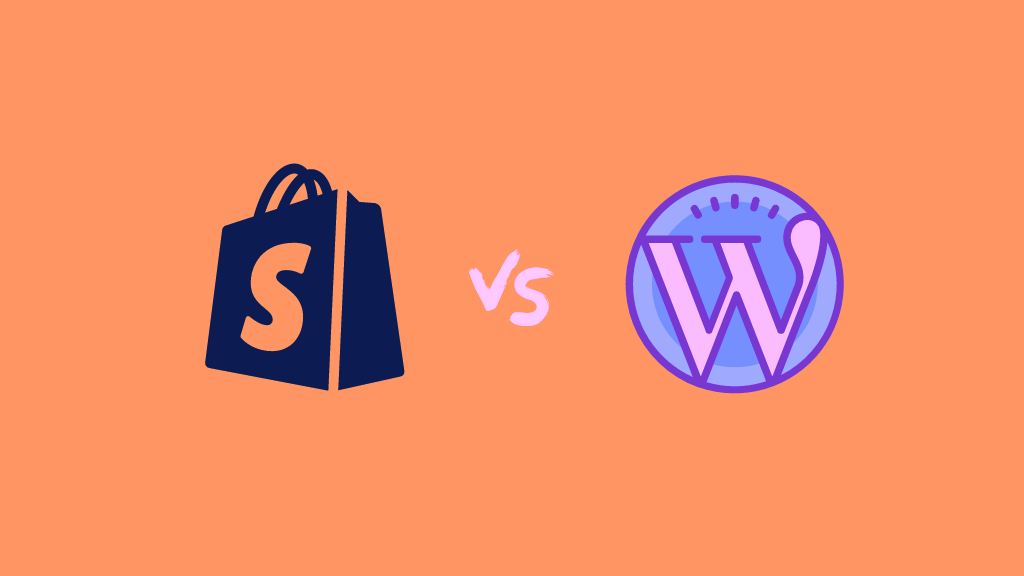
When it comes to building and maintaining an online store, the choice of platform can significantly impact your business’s success.
Among the myriad of options available, WordPress and Shopify often emerge as two of the most popular.
While Shopify has gained traction, particularly among B2C businesses and early-stage startups, WordPress proves to be a more versatile and robust solution.
This article delves into why WordPress outperforms Shopify, specifically in terms of SEO, flexibility for customization, and overall scalability opportunities.
SEO Capabilities – WordPress SEO Advantages
Complete Control Over SEO:
WordPress offers unparalleled control over every aspect of SEO. Users can edit meta tags, URL structures, and create XML sitemaps with ease. Plugins like Yoast SEO and All in One SEO Pack provide comprehensive tools to optimize content for search engines.
Content Management System (CMS) Strength:
WordPress, originally a blogging platform, excels in content management. Its rich text editor and media management tools make it easy to produce and optimize content, a critical factor for SEO.
Extensive Plugin Ecosystem:
The vast array of SEO plugins available for WordPress allows for advanced optimization techniques. These plugins provide functionalities like automated SEO checks, internal linking suggestions, and real-time content analysis.
Customizable Permalinks:
WordPress allows users to create SEO-friendly URLs. Customizable permalinks ensure that URLs are clean and keyword-rich, which enhances search engine visibility.
Implementing schema markup is straightforward with WordPress. Plugins like Schema Pro and WP Review enable the addition of rich snippets, which can significantly improve click-through rates from search engine results pages (SERPs).
Shopify SEO Limitations
Limited SEO Control:
Shopify offers some basic SEO features, but it falls short in providing complete control over SEO elements. For instance, editing the robots.txt file or customizing URL structures is either restricted or not possible without significant workarounds.
Structured Data Limitations:
While Shopify does support structured data, it requires manual addition or third-party apps. This can be cumbersome and limits the ability to implement advanced SEO techniques.
Duplicate Content Issues:
Shopify can create duplicate content issues, particularly with product variations and collections. This can negatively impact search engine rankings if not managed properly.
Subpar Blogging Platform:
Shopify’s blogging capabilities are limited compared to WordPress. Since content marketing is crucial for SEO, the lack of a robust blogging platform is a significant disadvantage.
Flexibility for Customization – WordPress Customization Benefits
Open Source Nature:
As an open-source platform, WordPress offers unmatched flexibility. Developers can access and modify the core code, allowing for extensive customization to meet specific business needs.
Theme and Plugin Variety:
WordPress boasts a vast library of themes and plugins, both free and premium. This extensive selection enables businesses to tailor their websites precisely, whether through aesthetic themes or functional plugins.
Custom Development:
For businesses with unique requirements, WordPress supports custom development. Developers can create bespoke plugins and themes, ensuring the platform can adapt to any business model or operational need.
DesignDiverso end solution includes a fully custom website, SEO, Branding, organic inbound lead generation, all done for you, the best part? Our plans are covered by a money-back guarantee, no risks involved at a very affordable rate, we run everything so you can focus on your business.
Multilingual Support:
WordPress provides excellent support for multilingual websites through plugins like WPML and Polylang. This is particularly advantageous for businesses looking to expand their reach globally.
Advanced Custom Fields (ACF):
ACF and similar plugins allow for the creation of complex data structures. This flexibility is crucial for businesses needing customized content types beyond standard posts and pages.
Shopify Customization Drawbacks
Closed Ecosystem:
Shopify operates as a closed system, which limits the extent of customization. While it offers a range of themes and apps, the level of control does not match the flexibility provided by an open-source platform like WordPress.
Theme Customization Limits:
Customizing Shopify themes often requires proficiency in Liquid, Shopify’s templating language. This adds complexity and limits flexibility for users who are not proficient in coding.
App Dependency:
Many customization needs in Shopify require third-party apps. These apps can be expensive and may not always integrate seamlessly with each other, leading to potential conflicts and increased costs.
Restricted Access to Code:
Users do not have full access to the underlying code, which restricts deep customizations. This can be a significant drawback for businesses with specific technical requirements.
WordPress Scalability Strengths
Server Flexibility:
WordPress can be hosted on a variety of servers, giving businesses the flexibility to choose a hosting provider that meets their scalability needs. Whether on shared, VPS, or dedicated servers, WordPress can scale accordingly.
Performance Optimization:
With plugins like W3 Total Cache and WP Super Cache, WordPress sites can handle high traffic volumes while maintaining fast load times. Content Delivery Network (CDN) integrations further enhance performance and scalability.
Database Management:
WordPress can handle large databases efficiently. By optimizing databases with plugins like WP-Optimize, businesses can ensure their websites remain performant even as data volumes grow.
E-commerce Scalability:
WooCommerce, a powerful e-commerce plugin for WordPress, offers extensive scalability. It supports a wide range of products, multiple payment gateways, and advanced inventory management, making it suitable for businesses of all sizes.
Shopify Scalability Issues
Hosting Limitations:
Shopify’s all-in-one solution includes hosting, which on the surface appears convenient. However, businesses are limited to Shopify’s infrastructure, which may not scale as efficiently as dedicated hosting solutions tailored to their needs.
Performance Bottlenecks:
High-traffic stores on Shopify may experience performance issues, particularly during peak times.
While Shopify does provide infrastructure upgrades, these come at a cost and with limitations.
Transaction Fees:
Shopify charges transaction fees unless users opt for Shopify Payments.
As businesses scale and transaction volumes increase, these fees can add up, impacting profitability.
App Integration Costs:
As businesses grow, they often require additional functionalities that are only available through third-party apps.
These apps come with recurring costs, which can significantly increase the total cost of ownership as the business scales.
Shopify’s pricing structure can be misleading. The advertised prices often only cover basic hosting and platform usage.
To run a fully functional e-commerce store, businesses typically need to invest in additional apps and themes, leading to higher monthly costs than initially anticipated.
DesignDiverso: A Comprehensive Solution
For businesses seeking a more holistic solution, DesignDiverso stands out by offering not just a website but a comprehensive digital strategy.
DesignDiverso provides:
- Reliable and Fast Performance Hosting: Ensuring your website runs smoothly and efficiently.
- Organic Inbound Lead Generation: Utilizing advanced SEO and content marketing strategies to attract and convert leads.
- 24/7 Support: Offering round-the-clock assistance to address any issues or requests promptly.
- Branding: Helping businesses develop a strong and recognizable brand identity.
- Dedicated Digital Expert: Providing a dedicated professional focused on your brand’s success.
- Money-Back Guarantee: Ensuring satisfaction with the services provided, backed by a guarantee.
Unlike platforms that require constant upgrades and additional purchases, DesignDiverso offers a single, comprehensive package designed to support your business at every stage of growth.
Other technical benefits of our end-solution running on WordPress
1. Enhanced Security
Security Plugins and Features
WordPress offers numerous plugins and built-in features to enhance website security:
- Security Plugins: Plugins like Wordfence, Sucuri Security, and iThemes Security provide robust protection against malware, brute force attacks, and other threats.
- Regular Security Updates: The WordPress core team releases frequent security updates, ensuring the platform remains resilient against emerging vulnerabilities.
Customizable Security Measures
Unlike Shopify, where security measures are largely dictated by the platform, WordPress allows for more personalized security strategies:
- Customizable Firewalls: Users can configure web application firewalls tailored to their specific needs.
- Two-Factor Authentication: Easily implemented through plugins to add an extra layer of security.
2. Data Ownership and Control
Complete Data Access
WordPress (DesignDiverso) users have full control over their data:
- Database Access: Users can access their MySQL database directly, allowing for advanced data management and custom queries.
- Export Options: WordPress offers built-in tools to export site data in various formats, facilitating backups and migrations.
Compliance and Privacy
Having complete control over data is crucial for compliance with regulations such as GDPR:
- Data Processing Agreements: Businesses can ensure compliance by managing how data is stored and processed, without relying on third-party platforms.
- User Data Management: WordPress allows for more straightforward management of user data, consent, and privacy policies.
3. Development Environment and Workflow
Local Development Flexibility
WordPress can be set up locally for development purposes, providing several advantages:
- Local Environments: Tools like Local by Flywheel, MAMP, and WAMP allow developers to create local WordPress environments for testing and development.
- Version Control: Full compatibility with version control systems like Git ensures efficient team collaboration and version management.
Staging and Deployment
WordPress supports robust staging and deployment workflows:
- Staging Sites: Easily create and manage staging environments to test changes before going live.
- Continuous Integration/Continuous Deployment (CI/CD): Integrate WordPress with CI/CD tools to automate testing and deployment processes.
4. Performance Optimization
Advanced Caching Solutions
WordPress supports various caching strategies to improve performance:
- Object Caching: Plugins like Redis Object Cache speed up database queries by caching frequently requested objects.
- Full Page Caching: Plugins such as W3 Total Cache and WP Super Cache provide comprehensive caching solutions, reducing server load and improving page load times.
Content Delivery Network (CDN) Integration
WordPress integrates seamlessly with CDNs:
- Global Reach: Integrate with services like Cloudflare and Akamai to distribute content globally, reducing latency and improving load times for users around the world.
- Easy Setup: Plugins and configuration tools simplify the process of connecting your WordPress site to a CDN.
6. Advanced Media Management
Media Library Features
WordPress offers a powerful media library for managing images, videos, and other media files:
- Bulk Uploads and Edits: Easily upload and manage large numbers of media files.
- Image Optimization: Plugins like Smush and EWWW Image Optimizer automatically compress and optimize images for faster load times.
Responsive and Adaptive Images
WordPress natively supports responsive images, ensuring optimal display across devices:
- srcset Attribute: Automatically generates different sizes of images and serves the appropriate size based on the user’s device.
- Lazy Loading: Built-in lazy loading defers the loading of off-screen images until the user scrolls to them, improving page speed.
7. Integration Capabilities
Third-Party Integrations
WordPress excels at integrating with various third-party tools and services:
- Marketing Automation: Easily connect with marketing platforms like Mautic (included in all DesinDiverso’s plans.)
- Payment Gateways: WooCommerce supports a wide range of payment gateways beyond what Shopify offers, including regional and niche options.
- APIs and Webhooks: WordPress REST API and webhooks facilitate integration with virtually any external system or service.
Custom APIs
We can create custom APIs within WordPress to extend functionality:
- RESTful API: Build custom endpoints to interact with WordPress data programmatically.
- GraphQL: Use plugins like WPGraphQL to implement GraphQL APIs, providing more flexible data queries.
Wrapping up
While Shopify offers an accessible entry point for B2C businesses and startups, its limitations in SEO, customization, and scalability can hinder long-term growth.
WordPress, with its robust SEO capabilities, extensive customization options, and scalable architecture, presents a more powerful and flexible solution.
For businesses looking to invest in a platform that grows with them, WordPress, combined with the all-inclusive services of DesignDiverso, represents an unbeatable choice.
Book a free consultation with a professional advisor at DesignDiverso today and unlock your business’s true potential.

